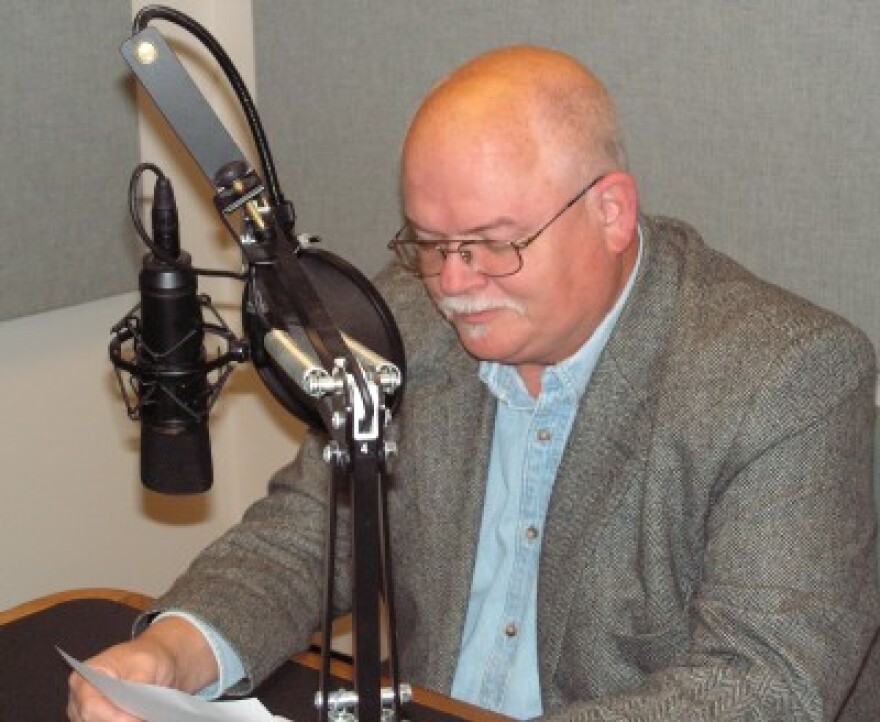http://stream.publicbroadcasting.net/production/mp3/wium/local-wium-990409.mp3
Macomb, IL – Solving the country's economic woes might seem like a mystery to Congress, but people see the clues - and the consequences of the ongoing Great Recession sparked by unregulated Wall Street's greed.
News that Americans are hurting isn't surprising to most folks. What's surprising is the extent of hardship.
Fact: More Americans live in poverty now than any time in 50 years; 46 million people. Our median income, or mid-point of all U.S. annual incomes, is down 7% from the year 2000. That's according to the new report from the U.S. Census Bureau, Income, Poverty and Health Insurance Coverage in the United States: 2010.
In Illinois, the percentage of people in poverty was up almost a point, to 14.1% from 13.3% in 2009. That's 1.8 million Illinoisans out of the state's population of almost 13 million residents.
"Poverty" is defined at thresholds. It's an annual income of $11,139 for an individual; $22,314 for a family of four. Other facts:
*Median household income declined 2.3% in one year, $49,000; real median household incomes have declined more than 6% since 2007.
*The official poverty rate in 2010 was 15.1% up from 14.3% in 2009 -the third consecutive annual increase in the poverty rate.
*Between 2009 and 2010, the poverty rate increased for children under age 18 (from 20 percent to 22 percent).
*Losses are concentrated in the income of earners on the lower end of the spectrum: The median income of young people age 15 to 24, for instance, dropped 9%, from $31,000 to $28,000.
*Some 16%, or 49 million Americans, were without health insurance in 2010, a million more than '09 - the highest ever. An exception was people between 18 and 24 years old, who benefit from health care reforms.
*Employer-sponsored health coverage declined, falling from 170 million people covered to 169 million people covered.
Public and private agencies alike are increasingly burdened with greater need.
Amy Terpstra, director of social impact research at Chicago's Heartland Alliance, said, "Without unemployment insurance, an additional 3.2 million people would have been poor in 2010.
"In the spring of 2011, 14.2% of the 25-to 34-year-olds in the US were living in their parents' homes," she told the Chicago Tribune. "That is 5.9 million young adults. If we didn't count parents' income, 45.3% would qualify as being poor."
Also, the Census data shows that the Supplemental Nutrition Assistance Program (SNAP - formerly called food stamps) kept 3.6 million people above the poverty threshold.
Without business hiring the jobless and/or government taking action, things will get worse.
Arloc Sherman from the Center on Budget and Policy Priorities said, "Poverty may well increase. Key bellwethers of poverty, such as long-term unemployment, worsened from 2009 to 2010, so the poverty rate may worsen as well. Poverty has already risen for most of the last 10 years," he added.
However, state and federal governments are retrenching and in doing so further slowing economic growth.
Further, three-fourths of the increase in U.S. corporate profit margins since 2001 came from depressed wages, according to J.P. Morgan.
Though very profitable in the last few years, the amount of taxes on profits of US corporations is about one-fourth of the amount in 1961, according to the Institute for Policy Studies: 40.6% then; 10.5% now.
Meanwhile, the Consumer Price Index is up 3.8% in the last year, according to the U.S. Bureau of Labor Statistics, driven by a 32.4% hike in motor fuel prices between August 2010 and August 2011.
No; it's no mystery.
Bill Knight is a freelance writer who teaches at Western Illinois University. The opinions expressed are not necessarily those of WIU or Tri States Public Radio


